BACKGROUND
Thank you to Members, brokers, brokerage, brand and association leaders for putting the public good – the health and safety of Ontarians – ahead of business. And for being there for buyers and sellers, offering prudent and informed advice during this unprecedented time.
You are trusted as professionals delivering an essential service . Now that people are returning to the market, we need to continue to put health and safety first while doing what you have always done best – helping Ontarians achieve the dream of a great place to call home.
Since the arrival of COVID-19 in Ontario, it has been OREA’s number one priority to protect the health and safety of our REALTORS® and their clients.
With Ontario moving into Stage Two of its Framework for Reopening the Province, many of the restrictions we have been living with since March are beginning to ease, and more businesses and services will be permitted to open, along with community, recreational and outdoor spaces.
In its re-opening guidelines for Stage Two (available at the province’s dedicated COVID-19 website), the Ontario Government does not specifically address real estate.
OREA is pleased to continue to provide guidance on safely and effectively ramping up the real estate business as we move into the “Restart” stage and towards Phase Three – Recovery, to meet consumer demand.
REALTOR® CONDUCT DURING STAGE TWO OF THE FRAMEWORK FOR RE-OPENING THE PROVINCE

As has been done throughout this pandemic, home buyers and sellers are turning to their REALTOR® for advice and insight on making important real estate transactions while protecting their health and safety.
All REALTORS® are encouraged to have an open and frank conversation with their clients about the expectations and realities of conducting real estate business during the COVID-19 pandemic, including what can be realistically executed and what is currently prohibited.
With a State of Emergency in effect in Ontario until at least July 15, a prohibition on open houses remains in place. OREA will continue to call upon our Members to conduct services remotely and to utilize technological alternatives such as virtual showings and electronic signing of documents first and to the greatest extent possible.
OREA also strongly recommends continuing its Stage One safety measures during in-person property showings. For a review of OREA’s Stage One guidelines, please visit the OREA COVID-19 Information Hub.
DIGITAL COMMUNICATION
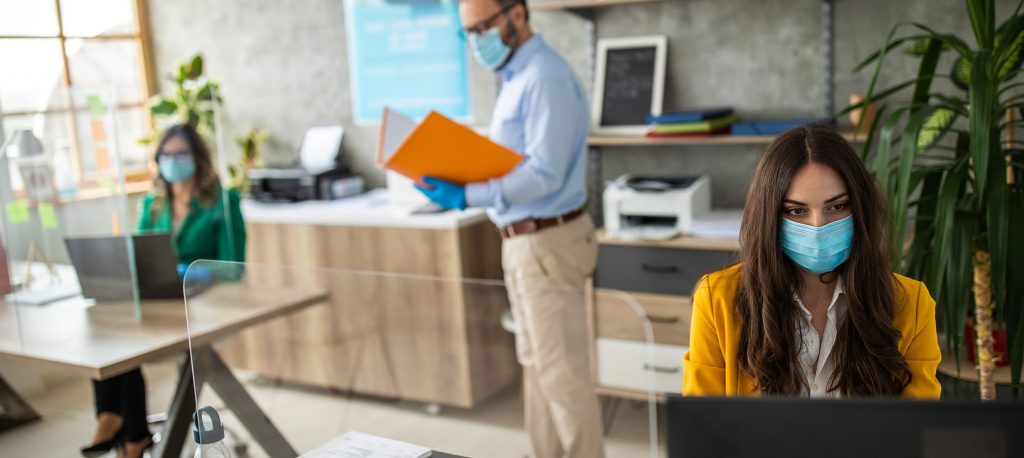
In conversation with clients or other REALTORS®, even in an office setting, it is strongly recommended that digital tools are used first and foremost and to the greatest extent possible.
Electronic Communication
Speak openly and candidly with your clients about their comfort levels in visiting homes or opening their home up to potential buyers. Have a very clear dialogue about comfort levels relating to showings and document the requirements in writing for both yourself and your clients. Do your best to accommodate any needs they articulate that are above and beyond the basic public health guidelines.
Digital Documents
The less paper being passed among people, the better. Reduce the number of physical documents passed from one party to another by making all brochures, listing sheets and other documents digital. These should be accessed with a QR Code, AirDrop, link onsite, email or other electronic means. Contracts and forms supporting the sale of the property should be completed on digital platforms.
Use Digital Tools
The use of virtual open houses and virtual tours are still strongly recommended. This means ultimately, many clients will be doing fewer in person showings since they can narrow down searches from virtual tours first.
REALTORS® should continue to use digital and virtual technology to interact with clients wherever possible. Let your client know about available alternative marketing opportunities that will allow you to continue to serve them and market their home. Three-dimensional property scans, virtual tours or live tours using Skype or Facebook; and virtual staging to showcase a property are among the great marketing opportunities REALTORS® can offer their clients.
Door Knockers / Hangers
There are no prohibitions against visiting a home and leaving a door hanger or information in a home’s mailbox. However, given the current climate in the pandemic, OREA is discouraging such practices. Knocking on doors to have face-to-face conversations is not advisable and will not be well received by Ontarians at this time. For the foreseeable future, it is recommended that materials be distributed electronically. Agents and salespeople are encouraged to look at options like targeted social advertising to replace door knocking.
Please continue to consult the Government of Ontario website regularly to ensure you are complying with the latest guidelines for safe workplaces.
OPEN HOUSES
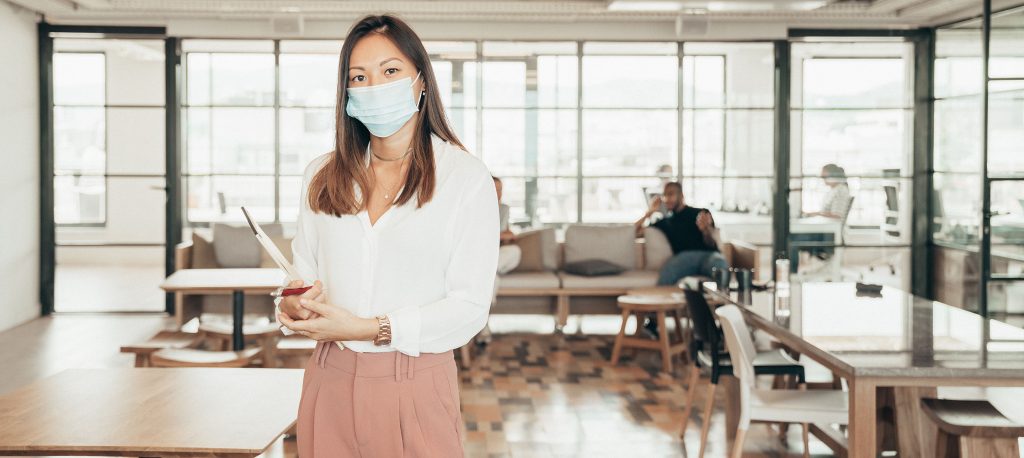
When the Ontario Government declared a State of Emergency in March, OREA strongly urged its Members to immediately cease open houses. The Government of Ontario followed OREA’s lead and prohibited in-person open houses on April 3.
In-person open houses remain prohibited by the Government of Ontario to protect the health and safety of everyone in Ontario. Virtual open houses are permitted and encouraged.
SHOWINGS
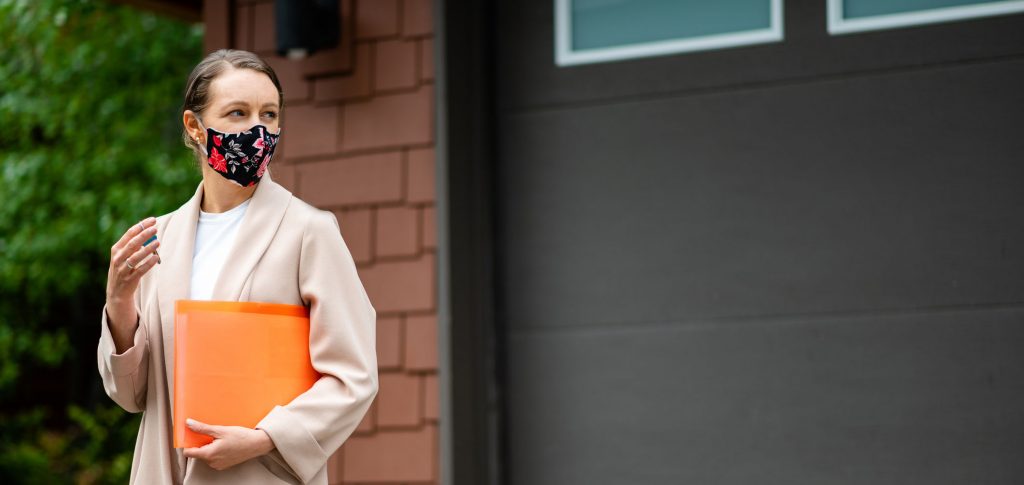
If your client decides that an in-person showing is necessary, conduct as much business as possible virtually before hosting or participating in an in-person showing. If a private in-person showing of a property occurs, all local health officials’ instructions (including those of municipal local health officials) must be followed. Particularly relevant will be guidance around physical distancing, use of personal protective equipment (PPE), such as masks, and cleaning and disinfection before and after the showing.
Practically, to reduce risk of transmission of the virus, at least the following should be considered in conjunction with all relevant and applicable advice, recommendations and instructions from public health officials:
Clean and Disinfect
It is standard practice for a selling homeowner to present a clean house. Today, it is even more important that the home is cleaned and disinfected before each showing. Ensure door handles, light switches, counters, cabinet knobs and other high-touch surfaces are targeted. Once a showing is complete, the home should be cleaned and disinfected again.
Wear PPE
The listing REALTOR® and their clients should follow provincial guidance and wear personal protective equipment (PPE), including masks, where physical distancing is not possible. This will frequently be the case in a home and REALTORS® should have PPE available for their own use and that of clients.
Replace the Handshake
Limited physical contact is vitally important to prevent the spread of COVID-19. Exercise physical distancing of at least two metres at all times.
Entering The Home
Under no circumstances should a buyer ever enter a home without being accompanied by a registrant. In the instance of a showing, the buyer’s representative should accompany their client into the property following physical distancing and PPE standards. With respect to the seller representative’s obligations, they should explain to the seller their rights and seek direction from them about whether they want the seller’s representative to attend showings and other visits, particularly by third parties (i.e. buyers, inspectors etc.). The seller should make an informed decision about how the home is going to be protected, remembering that the seller’s representative is entrusted to look after the best interests of the seller.
To minimize health risks, it is best if homeowners are not present during the showing.
Limit Time in the House
If it is necessary to enter a home, listing agents and their clients should limit the amount of time they spend in the home. Conversations with buying agents and prospective buyers should take place outside, and in between back-to-back showings the listing agent should disinfect high-touch surfaces.
Turn on Lights & Open Doors
Open all of the interior doors. Door knobs and light switches are two of the most commonly touched surfaces in a home. The listing agent or homeowner should ensure all lights are on and doors (including closet doors) open so that any viewings can be completed without having to touch these surfaces.
Improve Ventilation
Consider options to improve ventilation in a home, like opening windows, when completing showings.
Digital Documents
Reduce the number of physical documents passed from one party to another by making all brochures, listing sheets and other documents digital. These should be accessed with a QR Code, AirDrop, link on-site, email or other electronic means. Contracts and forms supporting the sale of the property should be completed on digital platforms.
Space out Showings
Each showing should be scheduled with enough time in between to facilitate a thorough disinfecting of the home and minimize inter-personal contact.
Take Precautions When Transferring Paper Documents
Rely on electronic means first when transferring documents to a client, and vice versa. Where there is no choice but to use paper documents, take precautions. When documents need to be transferred from a client to a REALTOR® or vice versa, such as executed agreements, deposit cheques or other documents, the REALTOR® should consider providing a bag/envelope for the documents to be placed into without passing directly from the client to the REALTOR®. Another option is to have drop boxes set up at the brokerage office.
Limit the Number at the Showing
Viewings should be limited to the parties to the contract only. Clients should be strongly discouraged from including extended family or children in the showing. Public health limits on the number of people in a gathering must be strictly followed.
Meet Your Clients at the Property
Do not offer to pick up your client and drive them to the showing. Driving clients to a home showing may be common practice in rural and Northern communities, but to help prevent the spread of COVID-19, it is important to make arrangements to meet clients at the property. Maintain physical distancing at all times.
Clean & Sanitize
Before and after entering a home, the agent and clients should wash their hands with warm water and soap and/or use an alcohol-based hand sanitizer.
Don’t Use the Bathroom
Do not use the bathroom during the showing.
MODEL HOME VIEWINGS
The opening of a model home should follow the same protocols and procedures as in-person showings. This should include:
- Potential buyers should be permitted by appointment only.
- Enact and enforce measures to ensure physical distancing and limiting mutual touch points.
- Provide hand sanitizer at the entrance and exit.
- Visitors should be strongly encouraged to use PPE.
- Clean the home between each visit, and post a clear, visible and regularly updated cleaning schedule.
TENANTED PROPERTIES & CONDOMINIUMS
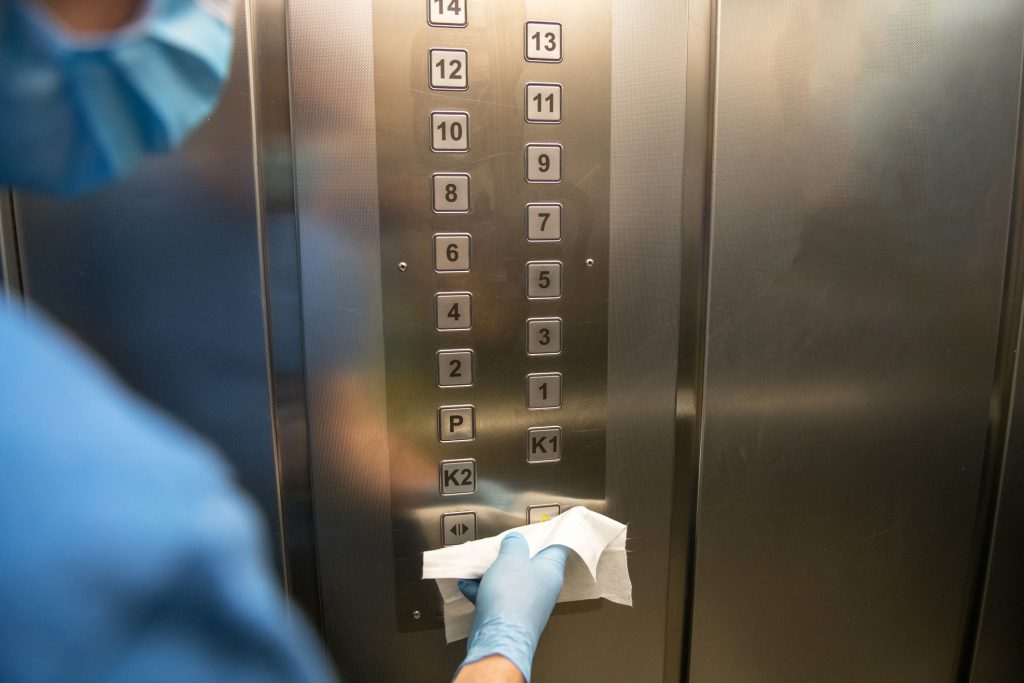
REALTORS® should endeavour to use digital tools and remote interaction with clients wherever possible. However, if needed, there are simply no prohibitions in Ontario law, including the State of Emergency Orders, against in-person showings of listed condominium or tenanted properties, but there are certain requirements.
In order for private showings to proceed they must comply with all recommendations, advice, directives and instructions from public health officials (including local public health officials), especially with respect to physical distancing, use of personal protective equipment (such as masks and gloves), cleaning and disinfecting before and after the showing.
OREA strongly encourages landlords and REALTORS® to work with their tenants to accommodate their needs, do virtual showings wherever possible and ensure they are not in the property during showings. No one with an underlying health condition should be forced to permit strangers into their home during the COVID-19 State of Emergency. In these instances, it is critically important that REALTORS® work proactively and positively with tenants to accommodate their concerns around health and safety.
REALTORS® should take every care not to put tenants at risk and to try and schedule showings to limit the amount of times people are going through the property. In particular, REALTORS® should work with landlords to get to know the tenant and if they have any underlying health issues.
REALTORS® are encouraged to work with condominium management, landlords and tenants to minimize conflicts and health risks.
Please visit the OREA COVID Information Hub for a recent communication from OREA on real estate showings.
Comply with Public Health Directives
- When showing or visiting a listed condo or tenanted property:
- Clean and disinfect all high-touch areas.
- Turn on all lights and open all doors, including closets.
- Open some windows to improve ventilation.
- Wear PPE, including gloves and masks.
- Limit the number of people entering the home to the potential buyer and their agent representative.
- Don’t use the bathroom.
SUPPORT SERVICES
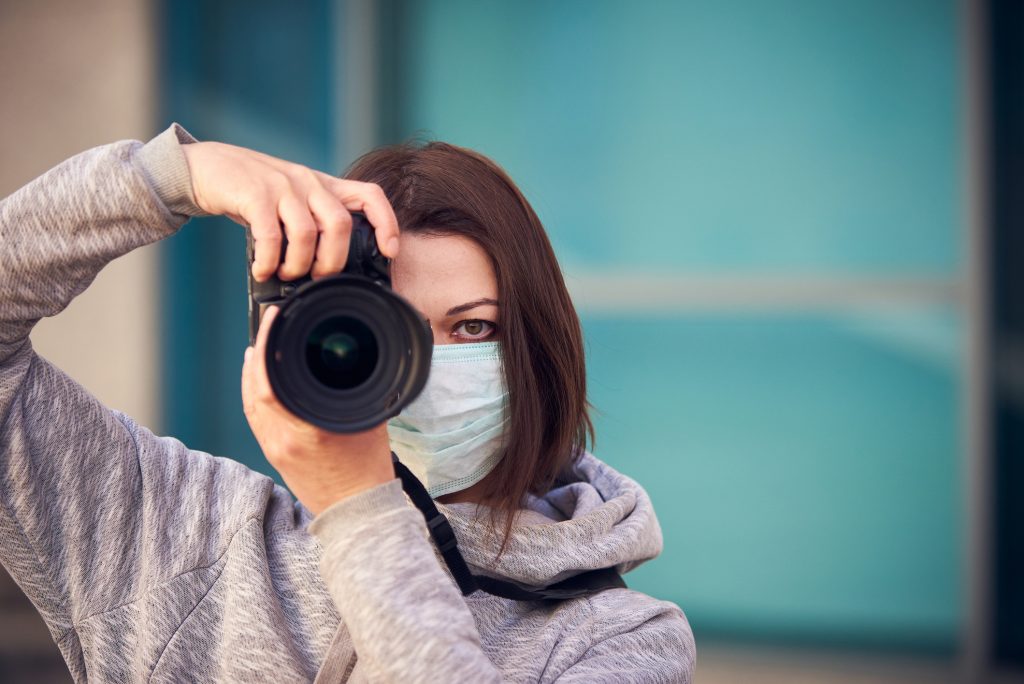
Home Inspectors
Home Inspectors have received their own legal opinion and the Ontario Association of Home Inspectors has advised that “OAHI’s corporate counsel has confirmed home inspections are still essential ‘in the context of a real estate transaction process…’” during the State of Emergency. Their letter can be found here at: https://www.oahi.com/english/news/update-april-4-home-inspections-a-an-essential-service-in-ontario.htm
Service Providers
Service Providers such as photographers, videographers, stagers and cleaners may generally be able to do what they need to do at the Seller’s home in support of a real estate transaction.
Service Providers would fall within the “Essential Business” category of Supply Chain businesses that supply another Essential Business, namely the real estate agent services. However, at least the following steps are required:
- The REALTOR® (and not their client) contracts with and retains the Service Provider’s services;
- Especially in the case of videographers, cleaners and stagers, the REALTOR® has appropriately contracted with their client to provide the client with those services;
- Only people absolutely necessary attend; and
- All other Emergency Orders and laws are followed including local public health authority guidelines.
This is based upon Ontario’s Emergency Orders in place April 9, 2020. As the COVID-19 situation is constantly changing, please note that the rules can change at any time. We encourage you to call the Government of Ontario’s Stop the Spread Business Information Line at 1-888-444-3659 for questions about specific services.
BROKERAGE OFFICE REOPENINGS
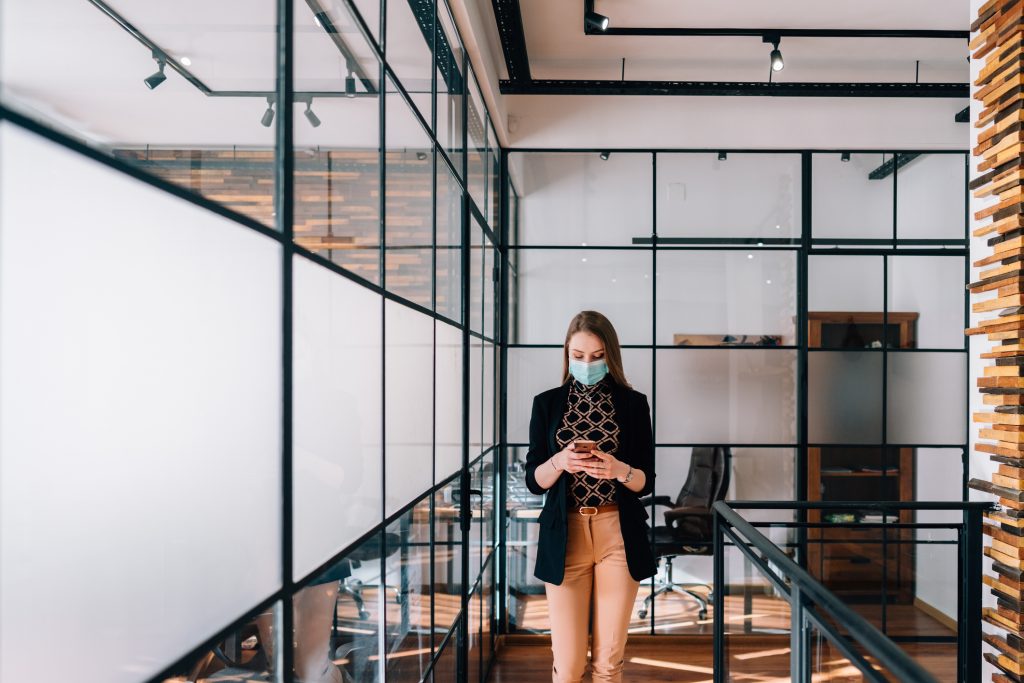
We know many of our Members are looking to reopen brokerage offices, or have slowly begun to do so. General guidelines from public health agencies in Canada urge employers to be cautious with bringing workers back to the office.
A healthy work environment is critical to success, and OREA wants to help ensure your brokerage can get going again while protecting the health of your real estate salespeople, support staff and clients.
The provincial government has also issued a new guide to help employers develop workplace safety plans and facilitate a return to work. The guide, How to develop your COVID-19 safety plan: A guide for Ontario workplaces, provides an overview of critical elements that can be modified for each workplace, including identifying the risk of transmission and mitigating that risk with measures that range from PPE to plexiglass shields.
For a list of COVID-19 reopening resources, visit the OREA COVID-19 Information Hub
By Appointment Only
In an effort to limit the number of people in the office, all clients, potential clients, visitors and agents should be permitted by appointment only. Signage, email signatures and phone messages should be changed to include an advisory that in-person meetings will only happen on a pre-scheduled basis. To help enforce this, the office door should remain locked until the visitor arrives for their appointment.
In consultation with public health guidelines, one way the manager could do this is by setting a limit on the number of people allowed in the office at any given time, and keeping a master schedule to ensure that limit is respected.
The Entrance
At reception areas where interaction with members of the public is likely to be higher, a plexiglass barrier is recommended, with proper PPE — like disposable gloves, masks and face shields — provided to front-line staff. A station should be set up with hand sanitizer and disposable paper towels to allow all visitors to clean their hands upon entrance.
Stay Home if You’re Sick
This is the most important. A fever, cough or difficulty breathing are symptoms of COVID-19. Even if you aren’t infected with COVID-19, prevent the spread of any illness by staying home. Not only does showing up to work sick put your colleagues at risk, it will also be bad for morale and office culture.
Brokerage office managers should provide screening for staff, agents and visitors, and should actively monitor for symptoms and support those showing symptoms to self-isolate.
Signage
Managers should post clear signage with screening questions at all entrances. If active screening of non-workers entering the workplace is not possible, post signage asking people with symptoms not to enter.
Display posters around the office to keep agents and staff informed of the importance of cleanliness and physical distancing, and their responsibilities in keeping everybody healthy and safe.
Clean Sweep
Before any workers return to the office, give the space a thorough cleaning and sanitizing in accordance with public health recommendations, ensuring all high-touch areas and hard surfaces are fully sanitized. Once open, continue to clean and sanitize common areas and high-touch surfaces, and ensure there is adequate hand soap, warm running water and alcohol-based sanitizer available. It is a good idea to supply bottles of hand sanitizer and disinfectant wipes at each person’s workstation.
For a list of hand sanitizers and disinfectants authorized and approved for sale by Health Canada, visit the Government of Canada website.
Client Meetings
While we are still encouraging work to be done electronically where possible, we also understand that meetings may be required to sign documents, etc. Clients should be asked to bring their own pens to sign documents.
Any in-person meetings should happen by appointment only, and pre-scheduled to respect limits on the number of people who would be in the office at any given time.
All meetings should respect public health measures, including appropriate physical distancing, cleaning and sanitizing before and after each visit, no handshakes or other physical contact and wearing PPE.
Reconsider Common Areas
If there are non-essential areas of the office that are not necessary for day-to-day business, consider closing them off. Reduce the number of seats available in a public waiting area to limit the number of people in the office at one time.
Together Apart
Despite a return to work, health authorities are still recommending physical distancing. In an open concept office, do not have co-workers sitting side-by-side, and do not allow employees to use another person’s desk. Remove chairs from board and meeting rooms to allow for physical distancing and limit the number of people who can be in there at one time.
Staggered Return
To help prevent overcrowding and continue to practice physical distancing, reduce the number of people in the office space at any given time. Institute a rotational schedule that designates when agents are permitted to use their office space.
Promote Digital
With much of the workforce working from home already, many workers are accustomed to using digital platforms for meetings and other work-related items.
Encourage the continuance of this practice to reduce the need for in-person meetings and provide the necessary technology to enable it to happen.
Take the Stairs
In an office building scenario, it is a good idea to avoid using elevators. If feasible, take the stairs to offices above the ground floors, and try to avoid using the hand railing. Regardless, once you get to the office, avoid touching your face and be sure to wash your hands thoroughly and often.
Disclaimer. The information contained in this post is not meant to be relied upon as legal advice by REALTORS®, or others. Members wishing further clarity or advice should seek independent legal advice specific to their circumstances. Due to the quickly changing regulatory environment during the COVID-19 emergency, this document may not be current or accurate by the time it is read.
The trademarks REALTOR®, REALTORS®, and the REALTOR® logo are controlled by The Canadian Real Estate Association (CREA) and identify real estate professionals who are members of CREA.
NOTES
The following link to ‘Public Health Ontario’s Covid-19 Public Resources’ provides specific advice with respect to, amongst other things, mask use, physical distancing, cleaning and disinfecting and situations where self-isolation is necessary:
The Ontario Government’s Resource Page (link below) includes guidance on such things as the use of personal protective equipment, appropriate controls and distancing issues, etc…
https://www.ontario.ca/page/resources-prevent-covid-19-workplace#section-1
Please note that local (municipal) public health officers may have augmented any advice, recommendation and guidance provided by the public health officials of the Province of Ontario.
It is also crucial to note that COVID-19 advice, recommendations and instructions, are regularly revised and so REALTORS® must take all appropriate steps to inform themselves with respect to the current advice, recommendations and instructions.